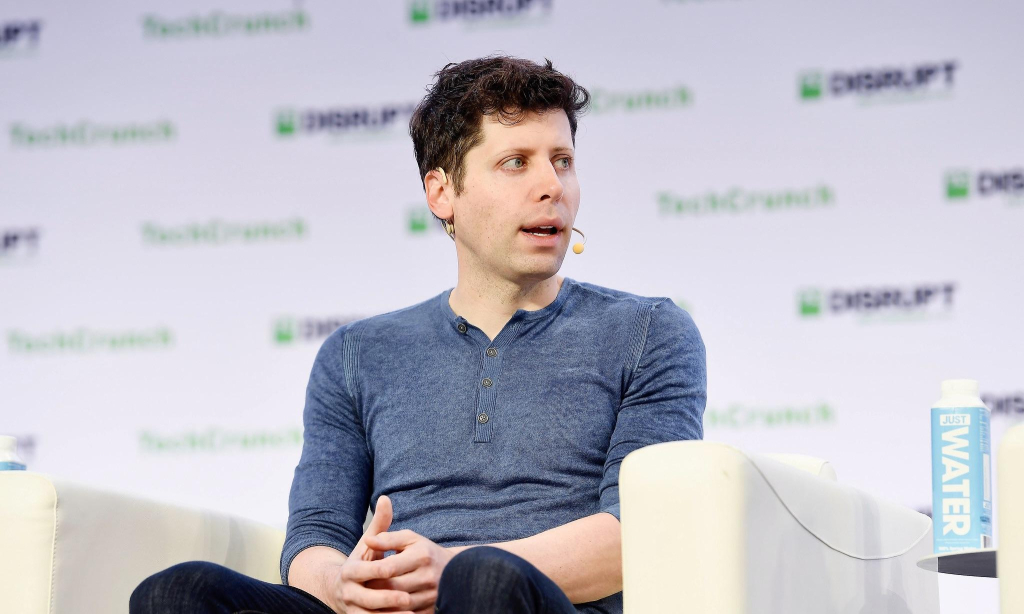Sam Altman envisions a world where superintelligence propels AI innovation 10x faster than expected, transforming global progress and redefining humanity’s future.
Early Arrival of AGI Sparks Debate
The most noteworthy is speculating on the possible arrival of AGI (artificial general intelligence) earlier than expected.
In recent months, there have been headlines suggesting that AI could spell the end of humanity. One prominent AI safety researcher even went as far as to say that there is a 99.9 percent chance that AI would bring about the end of the world unless we stop its advancement.
Sam Altman, CEO of OpenAI, recently gave an interview to The Free Press YouTube Channel (via @tsarnick on X) in which he discussed artificial general intelligence (AGI). If you believe the CEO:
"If the rate of scientific progress that's happening in the world as a whole tripled, maybe even like 10x, the discoveries that we used to expect to take 10 years and the technological progress we used to expect to take 10 years. If that happened every year, and then we compounded on that the next one, and the next one and the next one. That to me would feel like superintelligence had arrived."
Superintelligence and Its Distinction from AGI
The terms artificial general intelligence (AGI) and superintelligence are dissimilar. Since it is an advanced AI system, the former surpasses AGI's capabilities and outperforms humans in many ways, including speed, advanced reasoning, limitless memory, and more.
The OpenAI o1 release to wide availability, according to a technical employee at the AI startup, is AGI.
AGI’s Societal Impact and Safety Concerns
Curiously, Sam Altman had already hinted that AGI might whizz by society with shockingly no influence. It will be a long time between artificial general intelligence (AGI) and superintelligence, he continued, and the safety worries voiced over AI's fast development would not arise during the AGI moment.
Superintelligence, even Sam Altman concedes, will change the way people live and work and the economy functions. On the other hand, he asserts that technology won't alter our innate motivations or the things that we value most, "but the world in which we exist will change a lot."



 Alibaba, Baidu, BYD Shares Slide After Pentagon Military List Update
Alibaba, Baidu, BYD Shares Slide After Pentagon Military List Update  BOJ Signals Possible April Rate Hike as Ueda Eyes Inflation and Wage Growth Data
BOJ Signals Possible April Rate Hike as Ueda Eyes Inflation and Wage Growth Data  PBOC Scraps FX Risk Reserves to Curb Rapid Yuan Appreciation
PBOC Scraps FX Risk Reserves to Curb Rapid Yuan Appreciation  Dominican Republic Unveils Massive Rare Earth Deposits to Boost High-Tech and Energy Sectors
Dominican Republic Unveils Massive Rare Earth Deposits to Boost High-Tech and Energy Sectors  Nvidia Nears $30 Billion Investment in OpenAI, Replacing Previous $100 Billion AI Partnership
Nvidia Nears $30 Billion Investment in OpenAI, Replacing Previous $100 Billion AI Partnership  U.S. Stocks Rally as Nvidia Earnings Loom, Oil Prices Near Seven-Month Highs
U.S. Stocks Rally as Nvidia Earnings Loom, Oil Prices Near Seven-Month Highs  Pentagon Weighs Supply Chain Risk Designation for Anthropic Over Claude AI Use
Pentagon Weighs Supply Chain Risk Designation for Anthropic Over Claude AI Use  Coupang Reports Q4 Loss After Data Breach, Revenue Misses Estimates
Coupang Reports Q4 Loss After Data Breach, Revenue Misses Estimates  Germany and China Reaffirm Open Trade and Strategic Partnership in Landmark Beijing Visit
Germany and China Reaffirm Open Trade and Strategic Partnership in Landmark Beijing Visit  xAI’s Grok Secures Pentagon Deal for Classified Military AI Systems Amid Anthropic Dispute
xAI’s Grok Secures Pentagon Deal for Classified Military AI Systems Amid Anthropic Dispute  Gold Prices Rally in February as Geopolitical Risks and Economic Uncertainty Boost Safe-Haven Demand
Gold Prices Rally in February as Geopolitical Risks and Economic Uncertainty Boost Safe-Haven Demand  Federal Judge Blocks Virginia Social Media Age Verification Law Over First Amendment Concerns
Federal Judge Blocks Virginia Social Media Age Verification Law Over First Amendment Concerns  Venezuela Oil Exports to Reach $2 Billion Under U.S.-Led Supply Agreement
Venezuela Oil Exports to Reach $2 Billion Under U.S.-Led Supply Agreement  OpenAI Targets $600B Compute Spend as IPO Valuation Could Reach $1 Trillion
OpenAI Targets $600B Compute Spend as IPO Valuation Could Reach $1 Trillion  Synopsys Q2 Revenue Forecast Misses Expectations Amid China Export Curbs and AI Shift
Synopsys Q2 Revenue Forecast Misses Expectations Amid China Export Curbs and AI Shift  Oil Prices Steady as US-Iran Nuclear Talks and Rising Crude Inventories Shape Market Outlook
Oil Prices Steady as US-Iran Nuclear Talks and Rising Crude Inventories Shape Market Outlook 































